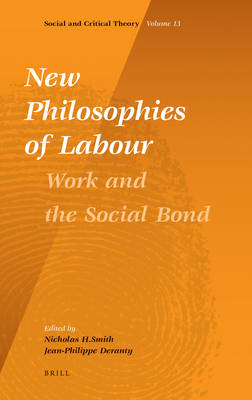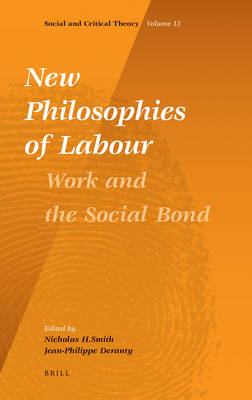
- Afhalen na 1 uur in een winkel met voorraad
- Gratis thuislevering in België vanaf € 30
- Ruim aanbod met 7 miljoen producten
- Afhalen na 1 uur in een winkel met voorraad
- Gratis thuislevering in België vanaf € 30
- Ruim aanbod met 7 miljoen producten
Zoeken
New Philosophies of Labour
Work and the Social Bond
€ 297,95
+ 595 punten
Omschrijving
One of the most vexing questions in contemporary political philosophy and social theory concerns the framework within which to undertake a normatively well-grounded, empirically attuned critique of capitalist society. This volume takes the debate forward by proposing a new framework that emphasizes the central anthropological significance of work (its role in constituting human subjectivity) as well as the role work has in the formation of social bonds. Drawing on the philosophy of Hegel and the post-Hegelian tradition of critical social theory, special attention is given to the significance of recognition in work, the problems of misrecognition generated in the present culture of capitalism, and the normative resources available for criticising it.
Specificaties
Betrokkenen
- Uitgeverij:
Inhoud
- Aantal bladzijden:
- 392
- Taal:
- Engels
- Reeks:
- Reeksnummer:
- nr. 13
Eigenschappen
- Productcode (EAN):
- 9789004209763
- Verschijningsdatum:
- 11/11/2011
- Uitvoering:
- Hardcover
- Formaat:
- Genaaid
- Afmetingen:
- 168 mm x 244 mm
- Gewicht:
- 771 g

Alleen bij Standaard Boekhandel
+ 595 punten op je klantenkaart van Standaard Boekhandel
Beoordelingen
We publiceren alleen reviews die voldoen aan de voorwaarden voor reviews. Bekijk onze voorwaarden voor reviews.







